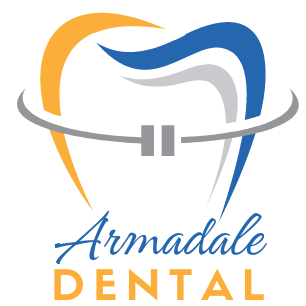Wisdom tooth extraction is recommended when there is insufficient space for them to grow properly, leading to potential issues like impaction, pain, infection, or damage to adjacent teeth. The procedure is typically done under local or general anesthesia to ensure the patient’s comfort. Dentists or oral surgeons carefully remove the affected teeth, providing relief from discomfort and preventing future oral health complications. After the extraction, proper post-operative care and follow-up with the dental professional are essential to promote a smooth and comfortable recovery. Wisdom tooth extraction can significantly improve oral health and prevent potential dental problems down the road.Your wisdom teeth don’t usually need to be removed if they’re impacted but aren’t causing any problems.


The level of pain experienced during the removal of wisdom teeth can vary from person to person.
While some people may report feeling pressure or discomfort during the procedure, the extraction itself should not be painful due to the effects of anesthesia. After the procedure, it is common to experience some pain, swelling, and mild discomfort during the recovery period. However, this can usually be managed with prescribed or over-the-counter pain medications and by following post-operative care instructions provided by your dentist or oral surgeon.
It’s essential to communicate openly with your dental professional about your concerns and any pain you may experience during or after the procedure. They can adjust the anesthesia and pain management accordingly to ensure your comfort. In most cases, any discomfort experienced during wisdom tooth extraction is temporary, and the long-term benefits of preventing potential dental problems outweigh the short-term discomfort.
How many days does it take to recover from wisdom teeth removal?
The recovery period after wisdom teeth removal can vary from person to person, depending on factors such as the complexity of the extraction, individual healing rates, and how well post-operative care instructions are followed. Generally, here is a rough timeline of what you can expect:
- Immediate Post-Extraction: In the first 24-48 hours after the procedure, you may experience some swelling, discomfort, and mild bleeding. This is entirely normal. Applying ice packs to the affected area and taking prescribed or over-the-counter pain medications as directed can help manage these symptoms.
- Days 2-3: Swelling and discomfort typically peak around the second or third day and then gradually subside. Continue to follow your dentist or oral surgeon’s instructions for pain management, oral hygiene, and dietary restrictions (such as avoiding hard or crunchy foods).
- Days 4-7: By this point, most people start to feel significantly better. Swelling continues to decrease, and you can usually return to a softer diet. You should still be cautious with your oral hygiene routine to avoid infection.
- Week 1-2: In the first one to two weeks, you should be able to resume most of your regular activities. However, it’s essential to continue monitoring your healing, maintain good oral hygiene, and attend any follow-up appointments as recommended by your dental professional.
- Complete Healing: Full recovery can take a few weeks to a few months, depending on the individual. The extraction sites will gradually heal and close, and any discomfort or residual swelling should continue to improve.
It’s crucial to follow your dentist or oral surgeon’s post-operative instructions carefully to promote proper healing and reduce the risk of complications. This includes maintaining good oral hygiene, avoiding strenuous physical activities, refraining from smoking or drinking through a straw (as these activities can disrupt healing), and taking any prescribed medications as directed.
If you experience severe pain, excessive bleeding, signs of infection (like fever or pus at the extraction site), or any concerns during your recovery, don’t hesitate to contact your dental professional for guidance and evaluation. They can provide personalized advice based on your specific case and ensure a smoother and quicker recovery.
